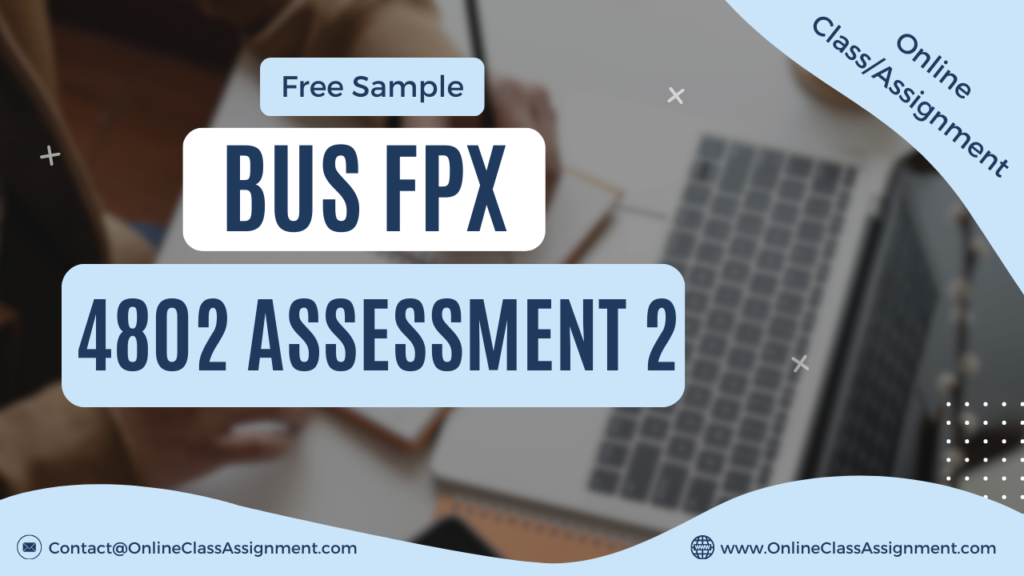
BUS FPX 4802 Assessment 2 Project Approach and Plan
Student Name
Capella University
BUS-FPX4802 Change Management
Prof. Name
Date
Project Approach and Plan
Change management aims to implement strategies for facilitating change, managing it effectively, and supporting individuals in adapting to change within organizations (McCalman, Paton, & Siebert, 2016). It outlines the methods to prepare, equip, and assist individuals in embracing change to enhance organizational success and outcomes (Prosci, n.d.). Guiding individuals or groups through their change journeys fosters the development of learning organizations, which promote adaptive and creative thinking among employees (ELM Learning, 2021).
Change Management Purpose and Discipline
Change management enhances project efficiency, cost-effectiveness, and outcomes, thereby increasing the likelihood of success (Smith, 2019). Examples of successful change management initiatives include Netflix’s transition from DVD subscriptions to a streaming service and Lego’s implementation of digital transformation strategies (Profits&, 2019). These organizations demonstrate effective change management practices as learning organizations.
Spotting a Non-Learning Organization
Non-learning organizations lack a clear vision, effective leadership, positive culture, initiative, communication, collaboration, teamwork, and knowledge management (Jacob, 2011). They tend to overlook problems and solutions, often deflecting responsibility to others (K. Brunsson, 1998).
Transforming into a Learning Organization
Non-learning organizations can evolve into learning organizations by embracing systematic problem-solving, experimentation, learning from past experiences, knowledge transfer, adapting to the present, and efficiently transferring knowledge (Garvin, 1993).
BUS FPX 4802 Assessment 2 Project Approach and Plan
Project Goals and Objectives
The goal is to increase Sunday School attendance and enhance teaching quality (Anders, 2018). Stakeholders aim to raise attendance to seventy-four students through structured curriculum changes every ninety days. Specific objectives include system thinking, establishing a shared vision, team learning, personal mastery, and addressing mental models (ELM Learning, 2021; Capella University, n.d.).
Selected Change Management Model and Tools
The Senge Five Discipline Model promotes organizational learning by expanding capacity, nurturing expansive thinking, fostering collective aspiration, and encouraging continuous learning (Toolshero, n.d.). The ADKAR Analysis model ensures employee support and belief in change by focusing on awareness, desire, knowledge, ability, and reinforcement (Athuraliya, 2021).
Project Plan: High-Level Timeline/Schedule
Meetings will be conducted via Zoom, starting with the initial contact on March 7, 2022. The timeline includes meetings to identify change needs, propose approaches, analyze stakeholders, and recommend interventions (Miller, 2020).
References
Anders, Ö. (2018). What does “learning organization” mean? The Learning Organization, 25(3), 150-158. doi:http://dx.doi.org/10.1108/TLO-02-2018-0016
Miller, K. (2020, March 19). 5 CRITICAL STEPS IN THE CHANGE MANAGEMENT PROCESS. Retrieved from Harvard Business School Online: https://online.hbs.edu/blog/post/change-management-process
Garvin, D. A. (1993, August). Building a Learning Organization. Retrieved from Harvard Business Review: https://hbr.org/1993/07/building-a-learning-organization
Dearlove, I. S. (1990). Peter Senge, The Fifth Discipline. The Ultimate Business Library, 249-252.
ELM Learning. (2021, May 7). What is a Learning Organization? Complete Guide. Retrieved from ELM Learning: https://elmlearning.com/what-is-a-learning-organization/
Jacob, R. (2011, January 18). 9 Signs of a Non-Learning Organization. Retrieved from Education Innovation: https://educationinnovation.typepad.com/my_weblog/2011/01/9-signs-of-annon-learning-organization.html
BUS FPX 4802 Assessment 2 Project Approach and Plan
K. BRUNSSON. (1998). NON-LEARNING ORGANIZATIONS,. Scandinavian Journal of Management, 14(4), 421-432. doi:https://doi.org/10.1016/S0956-5221(98)00002-5
Get Capella University Free Business Samples
BUS FPX 3007
BUS FPX 3011
BUS FPX 3021
BUS FPX 3022
BUS FPX 3030
BUS FPX 3040
BUS FPX 3050
BUS FPX 4012
